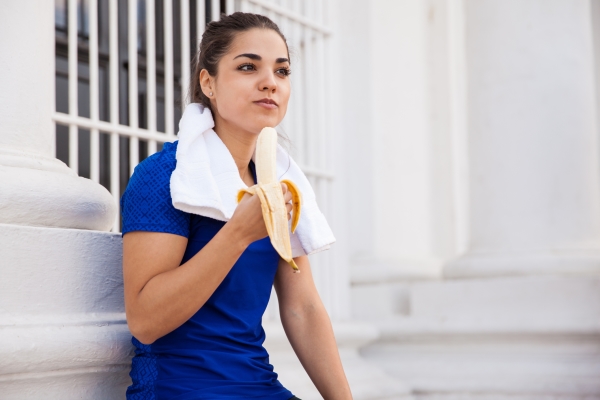By Traci DeVito, Co-Founder at Webb Compression

You curl up in bed early on a Friday night, proud of yourself for getting to sleep at a decent hour so you can feel rested for your early morning training run. Your favorite running gear is rounded up and sitting on your dresser so you can grab it and set out sailing as soon as your alarm goes off bright and early at 6AM. You’re all set to run 10 miles—right?
Not so fast. What will you eat before your run? How about during and after? Experts have a lot to say about running fuel, and the general consensus is that heavy training (meaning long runs!) requires some fuel to improve your performance and keep your stomach from growling mile to mile.
I personally try to eat some protein before my own workouts because I know it will keep me full and focused on the task at hand, rather than wishing I was digging into a jar of peanut butter instead. For example, I like to keep cashews and easy to grab bars on hand, but is that really best?
To find out, I rounded up the best tips from runners and running experts around the web. Keep reading to find out what they had to say about the best foods to eat both before and after your run.
Before a Run
- “Familiar foods that are easy on your system, low in fat and fiber, and high in carbs will boost your energy without upsetting your stomach.” –Runner’s World
- “Go for something easily digestible, like a banana with peanut butter and a high-calorie sports drink.” –Men’s Fitness
- “For normal easy run days, a small snack 30-90 minutes before your run is all you need to stave off hunger and provide a small boost to your blood sugar levels.” For long runs and harder workouts: “A medium sized snack or small meal 30-120 minutes before your run is optimal.” –Runners Connect
During a Run
- “Try to take in between 150 and 300 calories per hour during extra-long bouts—with gels, sports drinks, or whatever snack that you can carry and your body can handle.” –Men’s Fitness
- “Bananas and raisins are two options that tend to work well for many endurance athletes and have been proven as effective as sports nutrition products in research. One banana or ¼ cup raisins both provide about 30 grams of carbohydrate—falling in the lower end of our 30-60 grams/hour range.” –Women’s Running
- “I personally don’t want to use gels, chews, etc and am looking to supplement my marathon training runs with real food (ie, raisin, pretzels, bananas, muesli bars, etc). –Run Eat Repeat blog
After a Run
- “Eating within 30 minutes after a hard run is critical to recovery. It refuels your body, helps your muscles rebuild and recover and can prevent wild runger (aka running hunger) later.” –Run Eat Repeat blog
- “Reach for a meal with a 3-to-1 ratio of carbs to protein. Why? Carbs are more important, as they replenish the glycogen stores (i.e., the go-to energy source) in your muscles. Already know the power of chugging chocolate milk post-workout? Other options with the right ratio: a banana or apple with peanut butter, a berry and a banana smoothie with a scoop of protein powder or an oat bar with an almond, hazelnut, or peanut butter center” –Health
- “The best combination for quality recovery fuel is that of carbohydrates and protein. Carbohydrates are the body’s main fuel source, and are stored as glycogen in the muscles and liver. Since the body can only store a limited amount, it’s important to replenish those depleted during exercise. Protein is crucial for growth and repair of the broken-down muscle tissue.” –Run Away Shoes
